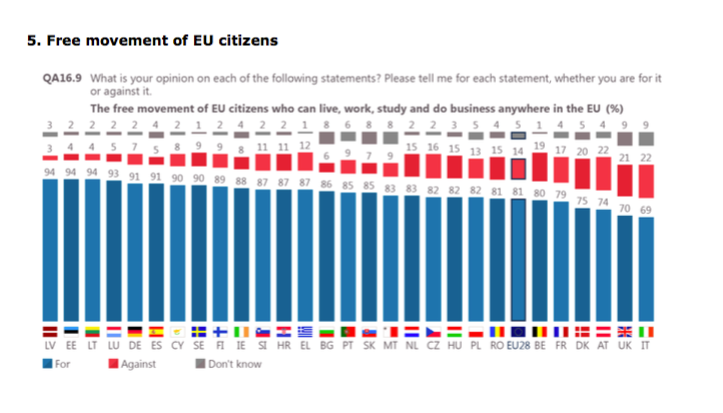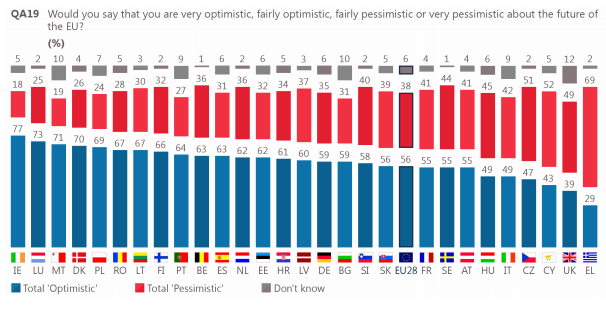Majority of British public support free movement of citizens anywhere in the EU, new survey suggests
A staggering 70 per cent of respondents said they were for the free movement of EU citizens who can live, work, study and do business anywhere in the EU

Your support helps us to tell the story
From reproductive rights to climate change to Big Tech, The Independent is on the ground when the story is developing. Whether it's investigating the financials of Elon Musk's pro-Trump PAC or producing our latest documentary, 'The A Word', which shines a light on the American women fighting for reproductive rights, we know how important it is to parse out the facts from the messaging.
At such a critical moment in US history, we need reporters on the ground. Your donation allows us to keep sending journalists to speak to both sides of the story.
The Independent is trusted by Americans across the entire political spectrum. And unlike many other quality news outlets, we choose not to lock Americans out of our reporting and analysis with paywalls. We believe quality journalism should be available to everyone, paid for by those who can afford it.
Your support makes all the difference.A majority of the British public support the free movement of citizens to live, work, study and do business anywhere in the EU, according to a new survey mapping public opinion across Europe.
It comes after a spokesman for Theresa May confirmed earlier this week that free movement would end when Britain formally leaves the EU in March 2019 – the deadline set for the conclusion of Brexit talks.
But the barometer of public opinion – commissioned by the EU Commission – appears to contradict the commonly held view that British people are not in favour of free movement.
The survey suggests that up to 70 per cent of those interviewed in the UK said they were for the statement: “The free movement of EU citizens who can live, work, study and do business anywhere in the EU”. Just 9 per cent replied “don’t know” while 21 per cent disagreed.
But despite the clear majority support for free movement – one of the EU’s “four freedoms” – Britain still has the second lowest level of support out of all the member states. The survey shows that a staggering 94 per cent of respondents in the Baltic states of Latvia, Estonia, and Lithuania were for the free movement of EU citizens anywhere in the continent.

While Italian participants viewed free movement the least favourably out of all the member states a majority, 69 per cent, were still for it.
The major survey by the EU Commission was conducted through face-to-face interviews in May 2017 and a total of 33,180 people participated across the member states.
Responding to the survey, Peter Kyle, a Labour MP and leading supporter of the soft-Brexit campaign group Open Britain, said: “The clear support free movement enjoys among so many British people shows why the Government must not damage our economy in a desperate attempt to crack down on immigration.
“Our immigration system does need reform, but we must not throw the baby out with the bathwater. Britain will always need EU citizens to work in our businesses and our NHS, contribute to our welfare state and support our universities by studying here. And we will still want our citizens to have the right to live, study and work freely in Europe.”
Asked separately “what are the two most important issues you are facing at the moment”, the most frequently identified issue among Brits was rising prices, inflation and the cost of living. The second most important issue was health and social security while pensions and the financial situation of the household were the third most important issue. Just 4 per cent cited immigration as an issue facing them personally.

The commission data also claimed that despite the UK voting to leave the bloc at the referendum last year, an increasing majority – 56 per cent – of people in the EU were optimistic about its future. The most significant increase in optimism came from French respondents with 55 per cent now optimistic about the bloc’s future – an 11 per cent increase on the same survey in the autumn of 2016.
But among British respondents, optimism was much lower on 39 per cent while just 20 per cent believed the British economy would improve in the coming year.
Significantly, more than two-thirds of Europeans (68 per cent) also said they felt they were citizens of the EU – the highest level recorded by the commission in similar polls
Join our commenting forum
Join thought-provoking conversations, follow other Independent readers and see their replies
Comments